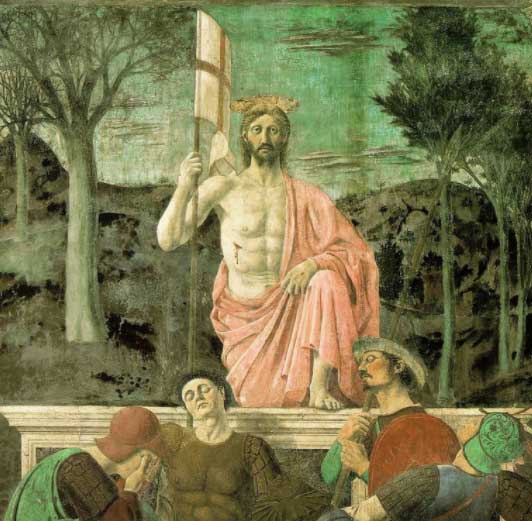My Goodness Without God
On Foolishness & the Secularist Question
April 20, 2018
First, two ministry notices:
I. We have added new speakers to our upcoming fall conference program, "Patriarchy: Fatherhood & the Restoration of Culture."
• Rachel Fulton Brown, a medievalist and associate professor of history at the University of Chicago, will present "Praying the 'Our Father': How Prayer Shapes Reality and What It Means for Fatherhood."
• Nancy Pearcey, professor of apologetics and scholar in residence at Houston Baptist University, will present "Is There a Father in the House? The Rise and Decline of Manhood in America."
For email updates on Touchstone's 2018 conference and notices about open registration, see here.
II. A generous benefactor has allowed us to make this great new offer: Give your student and/or graduates what amounts to a free subscription to Salvo for a year. For only $9.98 they will receive one year of Salvo plus a free copy of our 80-page Science & Faith Issue (which normally costs $7 plus shipping). Sign up here today just in time for your spring graduates and other students!
Two questions have arisen in recent years: Can we be good without God? And, more recently, can we be conservative without God (or religion)?
I think both questions are unanswerable because they are not legitimate questions. A question, in my mind, can only have a right or wrong answer if it is asking about something real. It's more like asking can Hamlet change?
There is nothing real about, there is no reality to, the situation of being "without God." Which is why "The fool says in his heart 'there is no God'." The very concept, while thinkable, is still false.
Discussing these questions as if official atheism or agnosticism are plausible scenarios we might accept, to me, are giving away way too much. My response to "Can you be good without God" is "First, tell me, can you exist without God?" Yes? I cannot. What have in common?
More to the Christian's sitiuation, I ask, "Will I accept the offer of God's help, in Christ, to become good [righteous, that is, holy]?" "None is good, but God alone," says the Lord. There is only one Source of goodness.
The history of modern times should suggest that without God, all bets are off. Even with "God" or a "religion" man may (!) end up being very wicked.
Just as our existence, our being, must come from the Ground of All Being, so, too, must our goodness comes from the Fount of all goodness. We instinctively know that "good and evil" do exist, so we are interested and concerned enough to ask whether we can be good (or evil) without God. But is not our approach here a bit like our primal sin? That is, to desire to know the nature of both good and evil, sort of, without God, for ourselves, on our own?
One way I've thought about what secularism has become is to notice the fate of the Sabbath. There is no longer any Sabbath. Not here. Not in my neighborhood. 24/7 life goes on, more or less. If there is a rhythm to the "week" it is derivative; it feeds off a fading memory of Sabbaths past.
In a Sabbath culture, which existed in various forms-Jewish, Catholic, Calvinist, and so on-men were made to stop their secular worldly activities because Someone required it, whether for man's own good or for worship aimed at the Divinity. It came from above. Sabbath was not human: a divine hand marked the day.

The Great Sabbath of Holy Saturday is not just the best name we can think of for the day between Good Friday and Easter Sunday. It was the Sabbath of Sabbaths, and on that day the Son of God kept Sabbath in the fullest sense, completely and utterly submitted to the Father. It was no accident then, that after the Sabbath, the women came to the tomb and found it the sealing stone rolled away, the Savior risen.
The Sabbath marks the end, and the Beginning, as in this depiction of the Resurrection: on the left, earthly life has died. On the right, the First Day of the Sabbath—new life. Can we be good without God? Why, we can't even live without him, so why ask the question? Perhaps, like those guards, some are actually asleep, dreaming that Christ can be kept securely enclosed, the whole wide world safe from his presence. He will have none of that, for all of it belongs to Him.
Yours for Christ, Creed & Culture,

James M. Kushiner
Executive Director, The Fellowship of St. James
—James M. Kushiner is Executive Editor of Touchstone: A Journal of Mere Christianity, and Executive Director of The Fellowship of St. James.







